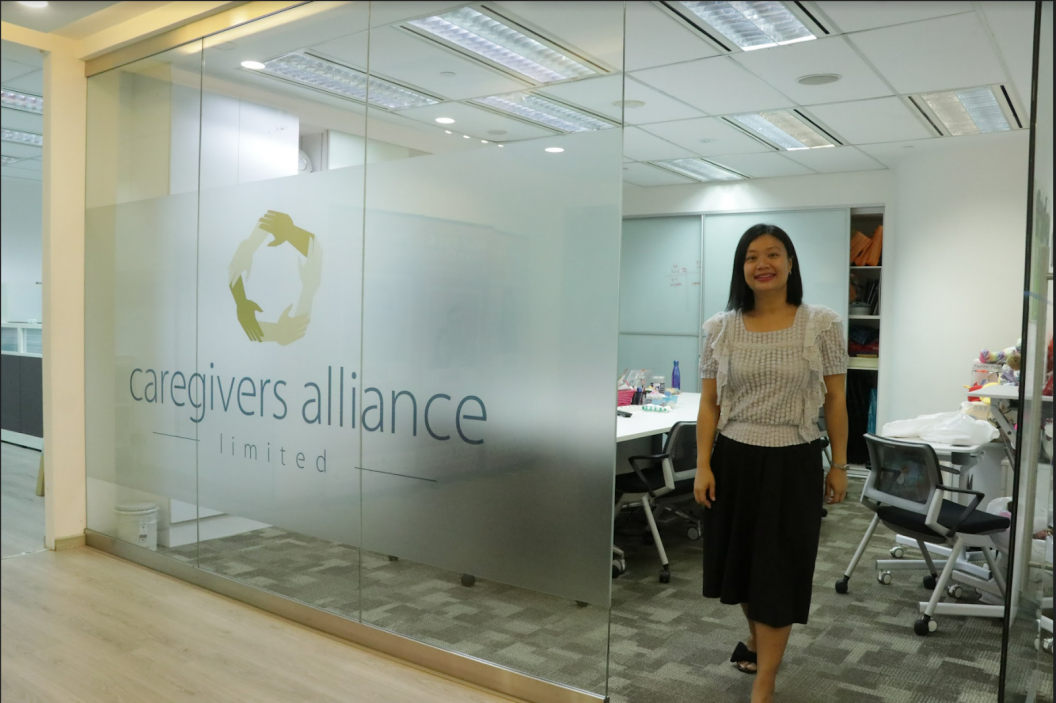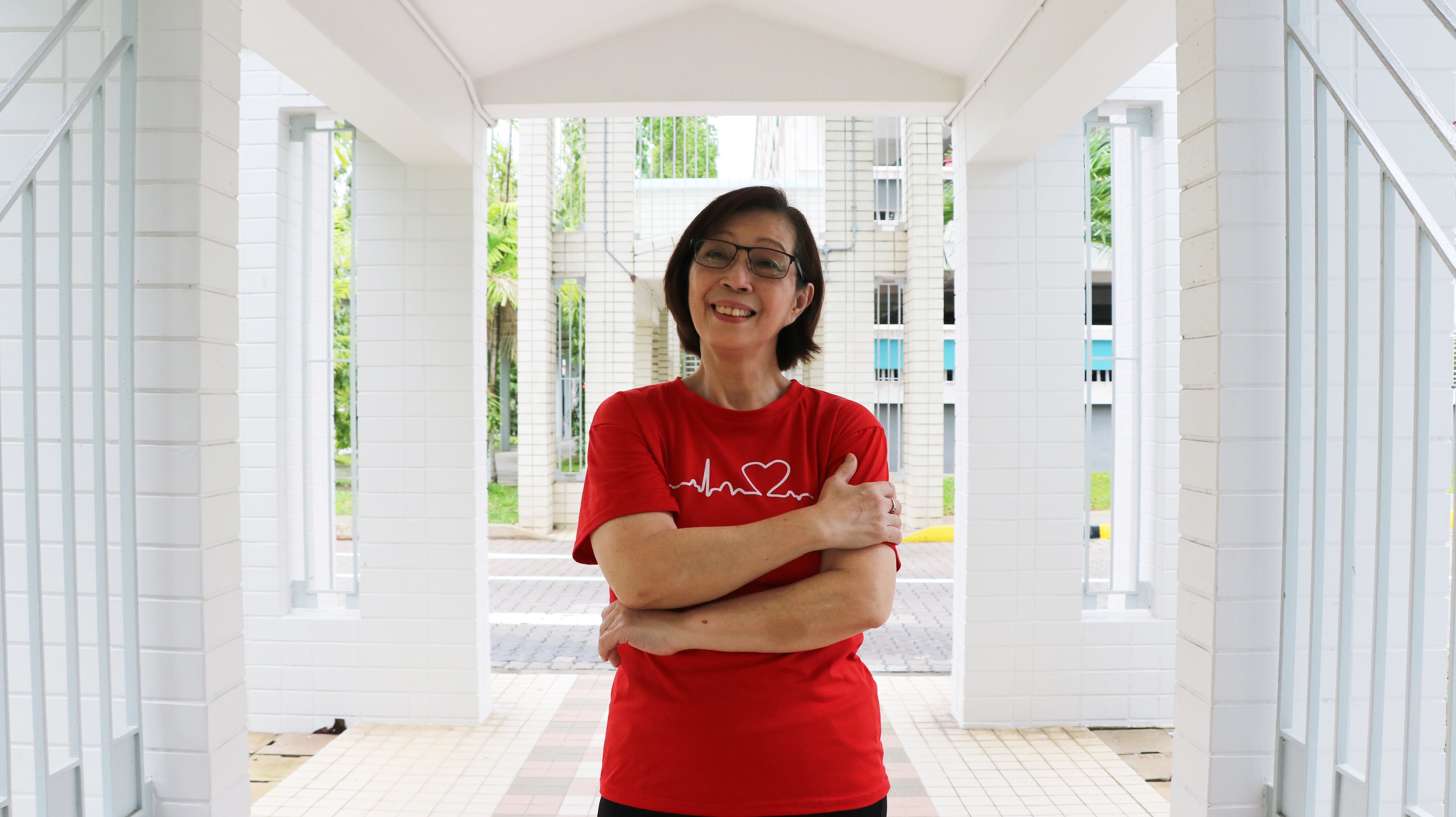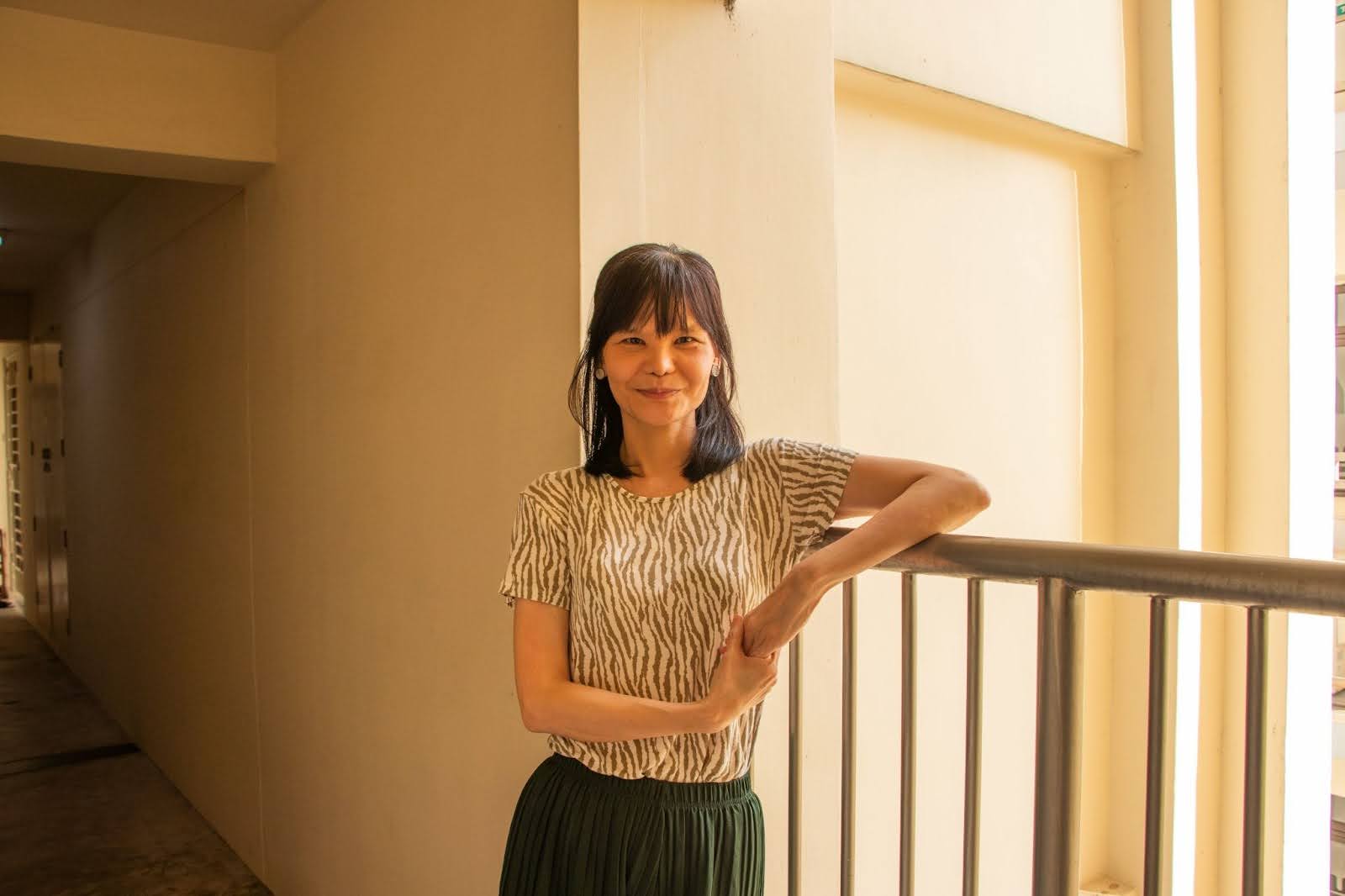What do you do when the enemy is yourself? When you can’t even trust that what you’re seeing and hearing is real? When everything — and everyone, including yourself — seems to be a threat? For many Singaporeans with schizophrenia, this may be a reality that they live with.
According to the Institute of Mental Health, 1 in 43 people in Singapore had a diagnosis of schizophrenia or other psychotic disorders at some point in their lives, with schizophrenia being the most common.
This is worth noting because schizophrenia is not something that we talk about often or even recognise when we encounter it. Thus, many who have the condition often go undiagnosed, unnoticed or are misunderstood by their family and friends. This may lead to a fear of reaching out, and a delay in getting the treatment they may need.
This was something that Valerie Liu, 40, experienced. Having mostly recovered from schizophrenia, she is currently working at Caregivers Alliance Limited (CAL), where she conducts outreach and facilitates programmes for caregivers as part of the Caregiver Community Outreach Team (CREST-CG). Under their Caregivers-to-Caregivers (C2C) programme, Valerie helps caregivers gain knowledge and insights on their loved ones with mental health conditions, and give them hope that recovery is possible.
In many ways, Valerie is no different from many female Singaporeans her age. She loves going to the gym, shopping, and eating out with family and friends — all ordinary activities that we take for granted. For Valerie though, these were things that she was unable to do for a long time. “It took me 16 years to get to where I am now,” she says.
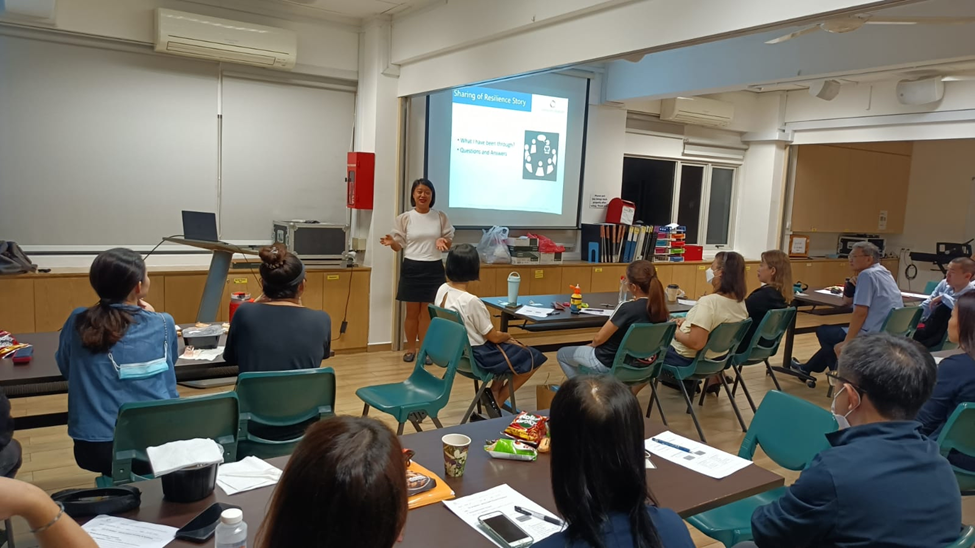
Into the dark: Those with schizophrenia frequently do not understand or know that they have the condition
Those lost years were confusing and frightening — she had no control of her actions and alienated family and friends. “I would hallucinate and have delusions.I would imagine people conspiring against me, telling me to commit suicide, that my mother was going to harm me — all negative thoughts that I couldn’t control.”
Things came to a head 16 years ago. “I walked barefoot on the streets as if I were possessed,” she recalled. Someone called the police and she was eventually brought into a facility. It was only then that Valerie was diagnosed with schizophrenia. For her family, the condition explained a lot why she behaved the way she did over the years.
“I felt indifferent and numb at the same time,” she says, when she first found out about her diagnosis. “I felt lost and had no idea what was happening. I had no idea what day it was, or if I ate. I wouldn’t be able to tell you if I took my medicine. I just followed what people did and what the nurse told me to do when I was warded.”
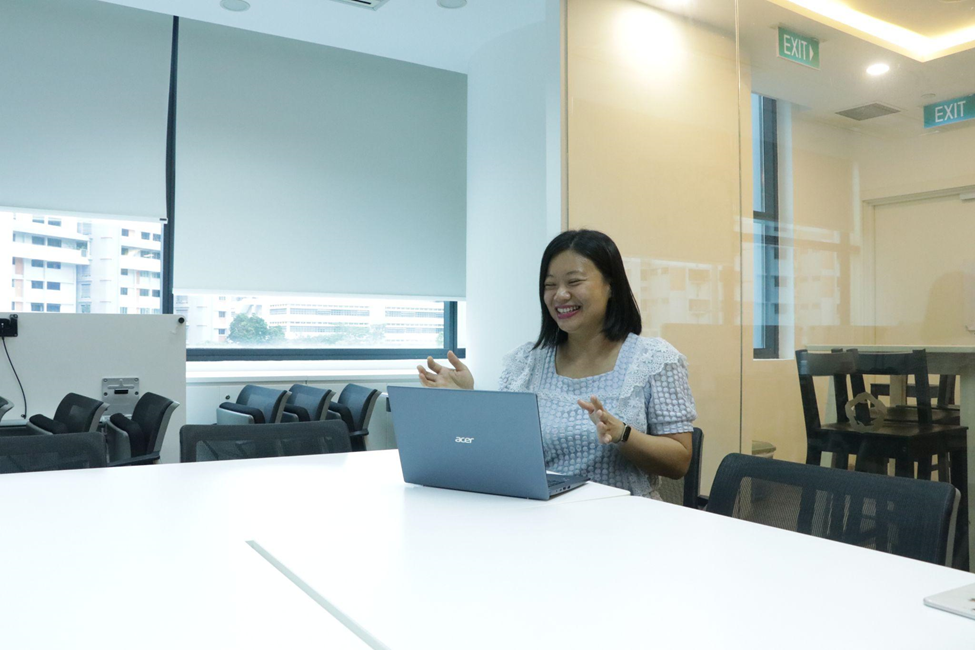
Out into the light: Recovery from schizophrenia is a long and ongoing process
After that incident, Valerie was able to slowly recover with her mum’s help. “My mum’s support and love have been invaluable. I learnt that I needed her to hold my hand at the initial stage of recovery for assurance and to be physically with me, especially when I heard voices. She attended the caregiver class that I am now teaching where she learned about empathy, communication and self-care. The course also taught her how to communicate with me better. Now, she’s like my best friend.”
The journey was long and arduous, says Valerie. “My mum said something to me early in my recovery that I would never forget. ‘You can only survive in the world if you stand on your own two feet; no one can help you, only you can help yourself.’ I was slowly getting better at that time, so I was able to comprehend what she said.”
Valerie likens her recovery journey to a rollercoaster. “There are ups and downs. Early in my recovery, it was terrifying. The mental health problems, the symptoms. But I learned that I was tough. It built my resilience and perseverance. To have a ‘never give up’ attitude no matter what happens or how long it takes. I have this greed to go on.” Now, Valerie says that she’s about 85% recovered. She takes medication to help manage her symptoms. She has also learned to recognise when she feels her symptoms surfacing. “It happens when I’m too tired or too stressed. I’ll have a ringing in my ears, which tells me that the symptoms are coming back. So I’ll close my eyes and rest.” Her medications also come with side effects, she says. One of the most telling side effects was weight gain. “For the longest time though, nothing seemed to make the weight budge,” she recalled. “I did Zumba, swam every day, and was dieting — nothing worked. And I’m a total foodie!” she laughs. “It felt like I was going against myself. Even exercise was difficult. Here I was dieting — I had no strength, but still needed to exercise.” Despite that, she persevered and had recently managed to shed the extra weight she gained – a total of 20kg. It helped that as her mental health improved, the doses of her medication were also reduced. “I figured that with my medication reduced, it might make it easier to lose weight. It did — but it was still a lot of hard work.”
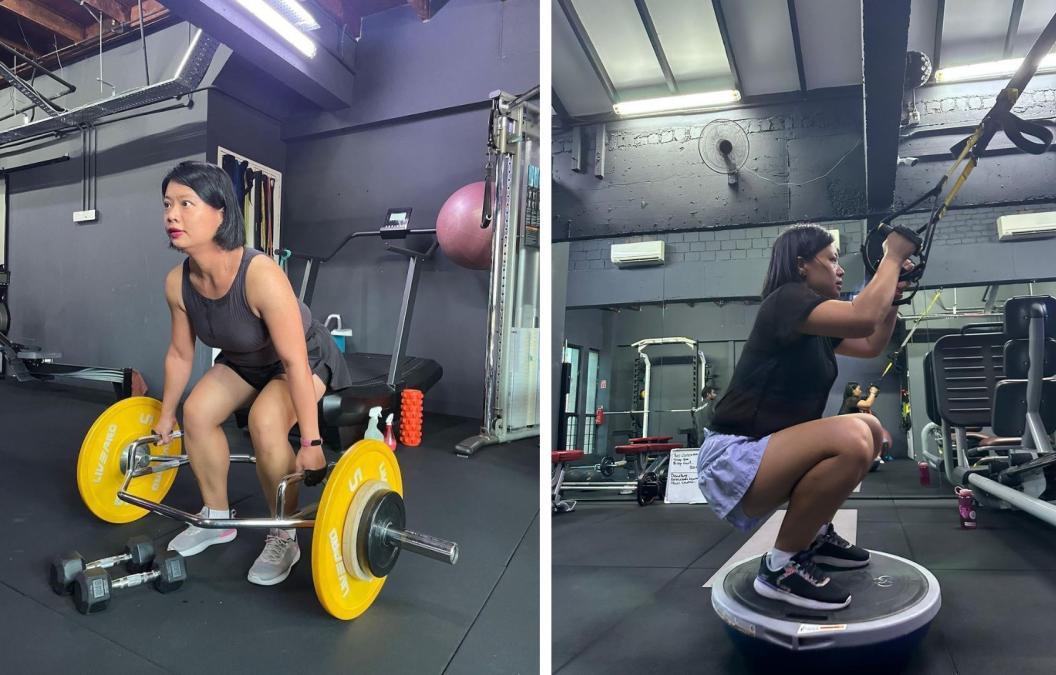
Hidden depths: Recovering persons from schizophrenia discover themselves in the process
As Valerie reflected on her journey, she discovered that she had a mental toughness in her that she didn’t know existed. “I told myself that if I could overcome my mental health condition, I could overcome my weight gain, too. I want to tell my friends looking to lose weight that if I can do it, they can do it.”
Valerie aspires to inspire others and be a role model. “I hope to inspire people. To let them know that if you persevere, it can be done.”
This is also why she’s very open about talking about her condition and her journey to recovery. “It allowed me to live openly in the light, which I hope may help others to walk out from their shells and seek support. I’ve gone through all these experiences so I do not want people to go through what I did. Besides, sharing makes me happy and being happy is important to me. It’s a two-way street.”
A little help from friends: Finding support for mental health conditions
Valerie says that more needs to be done so those with mental health conditions can get the help they need. “I do advocacy work to reach out to more people, but we also need to train caregivers,” she says, highlighting the work CAL does in this field. “If it helped my mother, I am sure it can help a lot of people. I really hope that more caregivers can be educated about mental health conditions and how to communicate with those who have them,” she says.
She also suggests that caregivers look for resources that can help — like on the Agency for Integrated Care’s website. “There are many resources available that may help. Young people, especially, may not be comfortable with face-to-face interaction, so maybe they can communicate through the online chat features*.”
What is important though is for more people to talk about mental health conditions such as schizophrenia. “We have to remove the stigma. I’m very lucky that I had a supportive family — my mum normalised my condition and treated it like something I could recover from. It helped me believe in myself too. This is very important — that we can discuss things like this openly and also treat it like a normal part of life. A mental health condition is not a death sentence. If I can recover, everyone else can, too.”
Start finding out more about the support available for your mental health and the available resources here: www.aic.sg/body-mind/mental-health. Caregivers who are interested in attending CAL’s programmes can visit www.cal.org.sg for more information.


